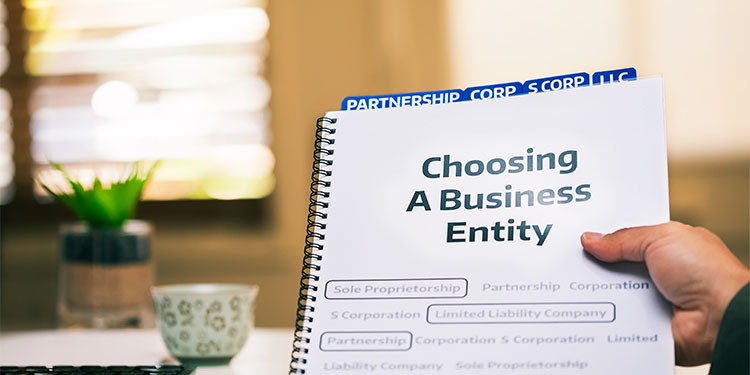Choosing a Business Entity for Your Franchise

For potential franchise buyers, many decisions need to be made – from choosing the right brand and aligning with the perfect location to starting a franchise or acquiring a franchise resale. However, an equally crucial decision often overlooked is selecting the appropriate legal business entity for the franchise. This choice can significantly impact your valuation, influence the sale price when you decide to exit, and affect your personal liability for legal issues.
The Importance of Choosing the Right Business Entity for a Franchise
Before you approach a business broker or discuss terms with a franchisor, it's vital to understand the significance of your franchise's legal structure. Just as a real estate agent would guide a client through the intricacies of commercial properties, a business brokerage specialist can help potential small business owners understand the implications of their decisions.
Having the correct entity can affect:
- Liability and protection from potential lawsuits
- Tax and legal impacts on your personal assets, including double taxation
- Tax implications which can either be a boon or a burden to your cash flow
- The ease or difficulty of bringing in partnerships or even mergers
- The way you present your business to potential buyers
Understanding the Different Business Entities
As you embark on your franchise journey, it's paramount to familiarize yourself with the various business structures available. Just as you'd choose the most suitable real estate property for your business, selecting the right entity can define your franchise's foundation, responsibilities, and legal protections.
Sole Proprietorship
A sole proprietorship is the simplest business form and is not a separate legal entity. It is essentially the person who owns the business and is personally responsible for its debts. This means if someone sues the business, they can go after the owner's real property and other assets.
Partnership
This involves two or more people who decide to go into business together. Like the sole proprietorship, it offers no protection from liability. The difference is that in partnerships, every partner is responsible for the business.
Corporation
Corporations are more complex and act as separate legal entities from their owners. They offer protection against personal liability. However, franchisors sometimes shy away from allowing corporations to buy franchises because of stock implications.
Limited Liability Company (LLC)
An LLC offers the best of both worlds, with the flexibility of a partnership and the liability protection of a corporation. Most often, franchises are set up as LLCs or S-Corps.
Factors to Consider in Selecting an Entity
Selecting a business entity isn't a decision to be made lightly. There are essential considerations to weigh when determining the structure that aligns with your franchise aspirations and objectives.
When choosing a legal structure, think about:
- Liability Protection: Ensure that your real estate transactions and assets are protected.
- Taxation: Consult with a real estate professional or accountant on the best structure for tax benefits.
- Ownership Structure: How many people will be involved? Will there be an equal share or a majority holder?
- Franchise Agreements: Some franchisors have specific requirements on the type of business entity you should set up.
Enlisting the Help of Professionals
Navigating the labyrinth of business entities requires the expertise of a seasoned lawyer and a sharp accountant.
These professionals, akin to business brokers, understand the ebbs and flows of the entrepreneurial journey and can shine a light on potential pitfalls and advantages of each entity. From assessing potential cash flow impacts to understanding the nuances of business brokerage, they can offer insights that might not be immediately evident.
So, before pen meets paper, and you're caught up in the excitement of becoming a new owner, remember the value of due diligence and always seek comprehensive legal advice with respect to incorporation.
Franchise Entity Requirements and Considerations
Starting a franchise business is more than just choosing a brand or location—it involves abiding by specific legal formalities that can shape your franchise's operation and reputation. From naming to registration, they're vital steps to ensure your franchise's legitimacy and success.
- DBA Rules: DBA (Doing Business As) is an alias for your business. Ensure you understand the rules and regulations for creating one.
- Multi-unit franchises: For those looking to own multiple units, consider if you need separate legal entities for each or if one overarching entity will suffice.
- Registration: Always register your franchise in the state where you plan to operate. This is crucial for real estate and business purposes.
- Naming: Your entity’s name should reflect the franchise brand while still adhering to state naming conventions.
- When to set up: Many franchisors require the entity to be set up before drafting contracts.
Franchise entrepreneurs must take the time to understand and choose the right business structure. While the process might seem daunting, having the right legal and financial professionals working with you will ensure you’re armed with advice to set your new business up to succeed. Remember, with due diligence and careful planning, you'll set a strong foundation for your franchise's success.

